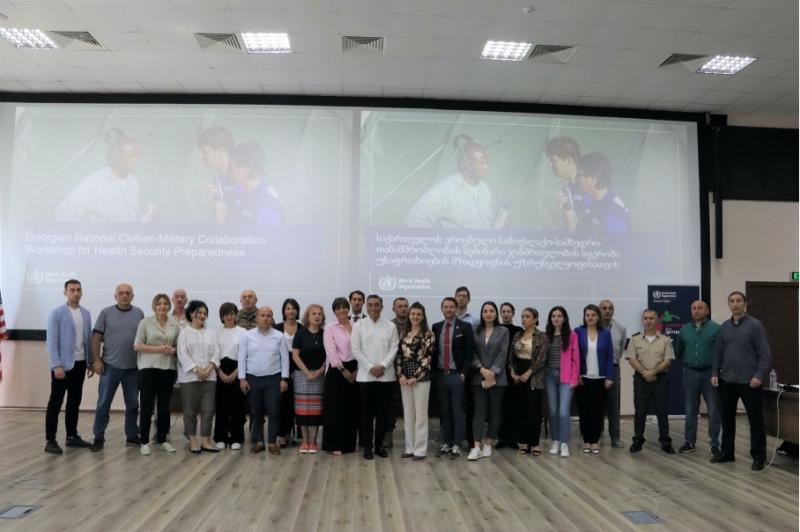
National Workshop on Civil-Military Collaboration to Strengthen Health Emergency Preparedness in Georgia
Multisectoral
European Region
Georgia
During the COVID-19 pandemic, many countries effectively engaged their military health services in domestic health emergency preparedness and response efforts. In November 2020, the World Health Assembly resolution WHA73.8, titled "Strengthening preparedness for health emergencies: implementation of the International Health Regulations (2005)", underscored the importance of adopting an all-hazards, multisectoral, and coordinated approach to preparedness for health emergencies.
In continuation of this work, on July 17th and 18th, WHO, in collaboration with the Georgian Government and key partner institutions, organized the Strengthening National Collaboration between Civilian–Military Health Security Preparedness Workshop in Tbilisi, Georgia.
The two-day workshop aimed to enhance civilian-military health collaboration at the national and sub-regional level through capacity mapping. It also sought to assist and support Georgia in further developing an understanding of the opportunities and limitations of civil-military collaboration at the national level, within the context of the National Civil–Military Health Collaboration Framework for Strengthening Health Emergency Preparedness: WHO guidance document (NCF) to enhance health emergency preparedness.
Georgia holds the distinction of being the first country to test the newly developed Civil-Military Health Security Mapping Tool (CMAP tool). This tool is designed to assist countries in establishing and advancing collaboration between the Ministry of Health and the Ministry of Defence by mapping civil–military capacities and capabilities corresponding to IHR core capacities relevant for strengthening health emergency preparedness.